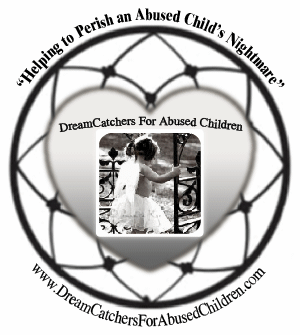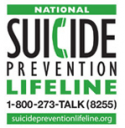How to Combat the Effects of Child Abuse in Adults
 Growing up in an unsafe environment as a child can lead to many issues in adult life. The early developmental stages during infancy and childhood are vital for a child’s mental, physical and emotional well-being. Without a stable home environment, this can cause difficulties later in life. If a child experiences abuse during school years, it can have a severely negative effect on their education which can under-prepare them for working life as well as the ability to create healthy and meaningful relationships. The effects of child abuse can manifest in various ways, including a refusal to allow others to see their vulnerability and therefore impact on their trust in themselves and others. These traits have insidious ways of affecting all aspects of life which is why it is so important to overcome them in order to improve the overall quality of life for someone who grew up in an abusive environment. Here are some of the effects that child abuse can have in later life and how you can deal with them.
Growing up in an unsafe environment as a child can lead to many issues in adult life. The early developmental stages during infancy and childhood are vital for a child’s mental, physical and emotional well-being. Without a stable home environment, this can cause difficulties later in life. If a child experiences abuse during school years, it can have a severely negative effect on their education which can under-prepare them for working life as well as the ability to create healthy and meaningful relationships. The effects of child abuse can manifest in various ways, including a refusal to allow others to see their vulnerability and therefore impact on their trust in themselves and others. These traits have insidious ways of affecting all aspects of life which is why it is so important to overcome them in order to improve the overall quality of life for someone who grew up in an abusive environment. Here are some of the effects that child abuse can have in later life and how you can deal with them.
One: Low Self-Esteem
A common result of an abusive childhood is low self-esteem and a poor image of oneself. If people in a child’s home are unable to teach the child that they have worth as a human being, then they can fail to see themselves as deserving of compassion, love and respect. Low self-esteem can lead to depression, social anxiety and destructive behaviors such as self-harm. If you require assistance with any of these here are contact details for people who can help you. Self-esteem is something that you can relearn in adulthood with careful guidance from a professional. Techniques such as cognitive behavior therapy can help to untangle the links between childhood trauma and present-day low self-esteem, resulting in a better understanding of the situation and a clearer view of how to address it.
Two: Mistrust
During the early years of life, children learn that their surroundings, whatever they may be, are the norm for them. When a child is raised in an abusive home, they can grow up believing that people are inherently unkind or violent to one another, not understanding that theirs was an unfortunate yet uncommon upbringing. When a child-rearing environment demonstrates deceit and lies, it can teach a person that these are acceptable techniques used by everyone. With this belief, it is easy to see why adults who have grown up in an abusive and manipulative environment can be led to the conclusion that no one is to be trusted. Like self-esteem, however, trust can be rebuilt and nourished to let victims of child abuse live a more fulfilling life with close relationships. It might take some time for this ability to regrow, but the value of learning to trust gives people an opportunity to experience stronger bonds with friends and loved ones.
Three: Drug and Alcohol Abuse
When experiencing traumatic memories in everyday life, it can be tempting for victims of child abuse to find solace in unhealthy ways. These are often selected for their fast-acting distraction from the pain despite the negative health consequences. If you are struggling with addiction, get local help for drug rehab to provide you with assistance in the process recovery. The link between emotional well-being and physical health is a close one that many people overlook. While children tend not to have access to alcohol and drugs, victims of child abuse may use these as a temporary respite for adults. The risks far outweigh the short period of relief, however, as addiction can destroy an entire life. Alcohol can cause liver disease among many other kinds of physical illness. Addiction also affects the relationships around you and can drive a wedge between the addict and the people closest to them. Finding other ways of coping is vital as it trains the mind to grow stronger instead of becoming dependent on temporary and unhealthy solutions.
Four: Repeating Unhealthy Patterns
As mentioned before, the development of a young mind in an abusive home builds a warped sense of ordinary life. As a result, adults who experienced a traumatic childhood can become uncomfortable in healthy relationships as they may perceive them to be unnatural or untrue. These people can also find themselves in abusive relationships because it is what they were taught was normal. Healthy or not, the first few years of life dictate what a child considers to be acceptable behavior in the world and thus an abusive relationship will not raise the same concern as it might in someone who did not experience an abusive childhood. Some people have reflected on their need to be with an abusive partner as a remnant from their childhood acclimatization to disorder and unhappiness, creating an unhealthy sense of comfort when surrounded by violence or manipulative behavior. Of course, this might also link in with low self-esteem as it tricks the mind into believing that the victim is undeserving of a healthy romantic relationship. Finding a qualified professional will help to retrain the mind into noticing the difference between positive and negative signs in a relationship, romantic or otherwise.
Five: Perpetuating the Cycle
If a child is raised unaware of the uncommon nature of their situation, when they grow up and have children of their own it poses the risk of their kids being mistreated in the same way. Of course, many parents who were abused as children can be extremely loving and nurturing to their children, but there are also people who have not learned that their childhood was abnormal and unhealthy. Perhaps they believe that their parents did nothing wrong and therefore hope to raise their child in the same way to bring them up to be a similar kind of person, or perhaps they feel justified in finding an outlet for their trauma by passing it on to the next generation. Either way, victims of child abuse can become excellent parents by learning what a child needs, even if they were deprived of it themselves. With counseling and guidance, an abusive childhood does not need to impair the rest of a person’s life.
---------------------------------------------By the time you finish reading this, 15 children will have been abused; In the next five minutes, 30 more; Within the next hour, 360 more; And by tonight, close to 8,000+ children will have suffered from abuse, 5 of which will die. Child abuse has increased 134% since 1980 and is now considered a worldwide epidemic. The high jump in child abuse deaths and the shocking increase in statistics highlights the frightening lack of public knowledge.
Educate Yourself -- Learn the Facts
It May Just Save a Child's Life!!


















![Validate my RSS feed [Valid RSS]](http://dreamcatchersforabusedchildren.com/wp-content/uploads/2009/10/valid-rss.png)












